- Home
- Alison Weir
The Marriage Game: A Novel of Queen Elizabeth I Page 3
The Marriage Game: A Novel of Queen Elizabeth I Read online
Page 3
Parker looked shocked, but Elizabeth gave him no room to speak. “If I marry,” she went on, “my husband might purpose to carry out some evil wish. My lord, you have had the good fortune never to have been in the Tower—but I have been a prisoner there. I assure you that the prospect of the ax cleaving into my neck was so terrible to me during those anxious days that I even resolved to ask that a French swordsman be sent for, to dispatch me as my mother had been dispatched. I can never forget it. Do you think I could lay myself open to that again?”
“Calm yourself, dear madam,” Parker soothed, his brow troubled. “You are Queen now. None may gainsay you or make you do what you do not wish to do. And Your Majesty is loved by all. No loyal subject would allow harm to come to you, even from a husband.”
“Enough! The matter is threadbare!” Elizabeth snapped. “I do not want to hear the word ‘husband’ again!”
When the next council meeting broke up, Cecil handed Elizabeth a letter.
“This arrived today,” he said. “It is not official business but something personal to Your Majesty, which you may prefer to read in private.” His voice was gentle, his eyes kind.
Elizabeth took the letter. A sense of foreboding filled her.
“What does it treat of?”
“It comes from a Scottish divine, Alexander Aless, who lives in Saxony. He was in England in 1536, and acquainted not only with the late King Henry, but also with Master Secretary Cromwell and Archbishop Cranmer. The letter contains information he felt he should disclose to you about your mother, Queen Anne.”
At the mention of Cromwell, Elizabeth shivered. He had been the man responsible for her mother’s fall, and the bogeyman of her childhood dreams, who had lurked in dark places, in cupboards, tree trunks, behind doors or under the bed. For as long as she could remember, the name Cromwell had had the power to disturb her. And yet, as a ruler herself, she recognized that he had been an administrator without peer and a tireless servant to his royal master—except for spinning a web of lies about his master’s wife!
Cecil was watching her compassionately. “I am sorry if this letter distresses you,” he said. “I thought hard about whether I should show it to you, but decided I had no right to keep it from you. Would you like me to stay while you read it?”
“No, William,” Elizabeth said. “Leave me now.” Cecil departed, telling the ladies waiting in the outer chamber that the Queen would call when she was ready.
Slowly she unfolded the letter. The spiky black writing danced before her eyes as she steeled herself to make sense of it.
Aless wrote vividly—too vividly, it would prove. He took Christ to witness that he spoke the truth, a truth he felt the Queen of England should hear. And he went on to describe how, at sunrise on the day on which Queen Anne was beheaded—although he had not known it was to happen—he’d had a dream or vision; he knew not if he was sleeping or waking, but in it he saw the Queen’s neck after her head had been cut off. It was so clear to him that he could count the nerves, the veins, and the arteries …
Elizabeth felt sick. She realized that she was trembling, and rose to pour a little watered wine to steady herself. She was not squeamish by any means, and had seen blood shed in her time, but this was her mother of whom the insensitive Dr. Aless had written. And although he had seen this horror in a dream—she could not credit that he’d been vouchsafed a vision—he described what would become reality only hours later.
She did not know if she could read any more. But she had to, of course. She had to know the truth.
Aless wrote that he had been so terrified by the dream that he immediately arose from his bed and crossed the Thames to the Archbishop of Canterbury’s palace at Lambeth, hoping to see Cranmer and ask for a spiritual view of it. He found the Archbishop walking in the garden; he too had had trouble sleeping. Elizabeth knew that Cranmer had been one of her mother’s most ardent supporters, a chaplain to the Boleyns, and a great advocate of Church reform, as was Anne herself. Small wonder that he was disturbed in his mind.
The Archbishop asked Aless why he had come so early, for the clock had not yet struck four. When Aless answered that he had been horrified in his sleep, and told him of the dream, Cranmer continued in silent wonder for a while. Then he asked, “Do you not know what is to happen today?” Aless answered that he had remained at home since the Queen’s arrest, and knew nothing of what had occurred since. The Archbishop raised his eyes to the sky and said, “She who has been the Queen of England upon Earth will today become a queen in Heaven.” So great was his grief that he could say nothing more, and burst into tears. Shaken by what he had learned, Aless returned to London, sorrowing.
His landlord, a servant of Cromwell, told him not to attempt to attend the execution, as foreigners were not being admitted to the Tower. But Aless could not have borne witnessing the butchery of such an illustrious lady anyway, especially as he believed her to be innocent of the crimes for which she was condemned. However, his landlord went, and after he returned home at noon, gave an account of what he had seen, which Aless could now impart to Anne’s daughter.
The Queen, he wrote, had covered her own eyes with a kerchief, kneeling upright on the scaffold before two thousand spectators. She had prayed aloud, beseeching God to receive her soul, then commanded the executioner to strike, which he did quickly. It had all been over in an instant. She could not have suffered much pain.
Elizabeth drained the wine, fighting back tears. She had long ago trained herself not to dwell upon Anne’s brutal end. As a girl she had been hungry for details, consumed them greedily, and then felt sick when they were too unpalatable to ingest. Aless’s letter had made her confront the truth once more. She stumbled to her bedchamber and found a handkerchief, then sat on the bed going over and over in her mind what he had written. When Kat came to lay out her clothes for the evening, she found Elizabeth sitting there in darkness.
“Why, Bess, what are you doing here?” she asked, reverting to the familiarity of long, affectionate service, since they were alone. Then she saw the letter lying on the bed.
“Read it,” Elizabeth said. Kat read. Then she sat down heavily beside her mistress, and suddenly Elizabeth was a little child again, sobbing her heart out on Kat’s plump breast, crying for the mother she had never known and yet still so sorely missed in many ways.
“France is our enemy,” Cecil told the council. “We are in a poor case to fight any wars. The treasury is empty, the realm impoverished. Our continued friendship with Spain is an imperative.” He looked meaningfully at Elizabeth.
“We will warmly consider any approaches from King Philip,” she said. “In the meantime, my lords, I would welcome your advice on a sensitive matter. When Queen Mary came to the throne, she had Parliament repeal the act declaring her mother’s marriage unlawful and herself a bastard. My own mother’s marriage was annulled, and I too declared a bastard. I wish to reverse that.”
There was a silence. The councillors looked at each other uncomfortably. Then Bacon spoke. “I would advise against it, madam. Queen Anne, God rest her soul, was unjustly condemned; but there are still many who dispute that, particularly the Catholics. The crimes of which she was accused were monstrous and sensational, even though the accusations were certainly false. To rake up the events of 1536 would be to court controversy and give your enemies more opportunities for calumny. Indeed, that would be more hazardous than the taint of bastardy. My advice is to let your lady mother rest in peace.”
Elizabeth found herself perilously near to tears. “It is a sad state of affairs when, even as Queen, I cannot rehabilitate her memory,” she said bitterly.
“Madam, leave well alone,” the Earl of Sussex advised. Balding and narrow-eyed, he was a man of great experience. The others nodded sagely.
“The truth will out!” Elizabeth said, rising. “Mark what I say. My mother’s name will not be covered in ignominy forever.” And in an angry rustling of silks she left the room and hastened to her bedchamber. Two st
artled maidens bent hurriedly to their curtsies, but she dismissed them. She had dreamed of this day for years, looked forward to the moment when she could clear her mother’s name of scandal and herself of the stain of bastardy. But she knew that Bacon had spoken the truth. Anne Boleyn had been accused of adultery, incest, and treason, her reputation steeped in infamy for over twenty years. In Europe, she was still reviled. Elizabeth knew that should she arouse the sleeping dogs of gossip, there would be many to say: like mother, like daughter. And that she could not afford. All the same, she was resolved upon two things: she would take for her motto as Queen the one her mother had chosen: Semper eadem—Always the same; and for her badge she would have Anne’s crowned white falcon perched on a tree stump flowering with Tudor roses. To Elizabeth, that stump was symbolic of her mother being cut down before her time.
She stood before Anne Boleyn’s portrait, one of her most prized possessions. She had come upon it years ago, hidden in an attic; now it hung opposite her bed. Save that her mother was dark and had a straight nose, there was a strong resemblance to Elizabeth herself: the same slender figure, the same slim face, the same dancing eyes that drew men on. Oh yes, it was easy to see why people had believed ill of Anne. And yet, Elizabeth had heard, she had been most careful of her honor, even as she flirted and danced with the men in her circle. She knew she was watched by hostile eyes. Above all, she had been a religious woman, keen in the cause of reform. True faith had flourished in England under her patronage. Elizabeth wished she had known her better. All she had of her mother was the portrait, a set of virginals, four pendants in the shape of Anne’s initials with drop pearls, and the blurred memory of a black-clad lady with furred sleeves and musky perfume who sang to her and appeared to have a halo around her head. It had been an illusion, of course. The halo would have been Anne’s French hood, a daring fashion in its day because it exposed the hair—but how elegant! Even so, the impression of a halo had led the child Elizabeth to believe that her dead mother was destined for Heaven.
She smoothed her gown and resolved to think of something else. Pinching her cheeks to bring out a blush, she stared at herself in the mirror, turning this way and that to admire her reflection in the burnished silver. It occurred to her that her habitual black clothing, of rich stuff but plain, did not become a queen, and that she did not have to dress so soberly anymore, especially now that there was no longer any need for her to be subtle in proclaiming her Protestant faith to the world. For nearly ten years she had worn the plain, unadorned garb of a godly Protestant maiden, and latterly made the lavishly dressed Queen Mary look like a graven idol by contrast. But the truth was, Elizabeth had adopted her severe clothing years before there was any need to blazon her faith; she had done it to emphasize her virtue, at a time when there was a pressing need to do so. She did not want to think of that time now. Few knew her secret, and they would never talk.
She would put aside her dull attire and wear her long, wavy hair curled. She would still display her faith in colors of black, white, and silver, but magnificently, in silks, velvets, taffeta, or cloth of gold, with delicate lace ruffs, gauzy veils, intricate embroideries, and the vast collection of jewels and pearls she had inherited. Her imagination leaping ahead of her, she resolved to adorn her clothing with emblems proclaiming who and what she was—Tudor roses for her House, ears of wheat for her faith in Christ, mulberries for her wisdom, suns to personify a ruler directed by God, and pansies, her favorite flower. There would be symbols too—an ermine for purity, a pelican for maternal love and sacrifice, a sieve for prudence, and a phoenix for immortality. By these symbols her people would know her and what she stood for. She felt quite elated at the thought. She would summon her tailors and her embroiderers right away! And—there was no point in spending money unnecessarily—she would have Queen Mary’s sumptuous coronation gown altered to fit her for her own crowning.
She also desired to have men admire her, which they could not fail to do because she was a queen and she had her mother’s gift of making them believe that she was beautiful. And she wanted to look beautiful for one man in particular. She wanted Robert Dudley to gaze on her enraptured as she proceeded through the court, a glorious being something more than human! She realized that she was thinking more and more of Robert as the days passed. She loved their daily rides, the easy banter, the flirtatious game of cat and mouse they played. All harmless fun, but if she was honest with herself, it was coming to mean more than that to her. And to Robert too, she was sure. She often sensed that he was reining himself in.
There was another portrait on the wall by the door. It always drew her eye, for it showed Henry VIII in all his magnificence, painted by Master Holbein. He had been a king among kings, and Elizabeth was proud to be his daughter. She always thought of herself as the lion’s cub, a lioness in Henry VIII’s mold. She knew, of course, that majesty was not just about outward display. She would be another ruler such as her father, but merciful, not as severe. Yet for all his cruelties, the religious changes he had brought about, and his unhappy marriages, Henry had retained the love of his subjects, and was still spoken of with awe and affection. The English, Elizabeth had concluded, liked strong kings. In his youth, she had heard, her father had been a golden hero, warlike and accomplished, the embodiment of the old royal blood of the realm, and he was hugely popular. He’d had the common touch, and she would follow his example. It came easily to those born with Tudor blood.
She looked at his painted, well-remembered face: the shrewd eyes, the high Roman nose, the small, sensual mouth. How she had longed for his smiles, his fatherly caresses, his praise. He had been a distant, godlike figure for much of her childhood, but when the mood took him he could be loving and playful and kind. Those had been the best times. He might have had her declared bastard when he had his marriage to her mother annulled, but she knew he was proud of her, and she knew that he recognized in her something of himself.
That was a comforting thought, because all her life there had been rumors that she was not his daughter but the fruit of her mother’s adultery with one of her so-called lovers. Even her sister had come to believe it. Mary had commented several times on the resemblance between Elizabeth and Mark Smeaton, the lute player who had perished with Anne. Well, she thought, it had suited Mary to believe that. Mary had come to hate and fear the prospect of Elizabeth inheriting the throne. But her comments hurt, as no doubt she had intended.
I am my father’s daughter, Elizabeth had said firmly to herself on many occasions. King Henry himself had never doubted it. He had always acknowledged her as his own. Many people had remarked—and still did—upon her strong likeness to him, especially in her red-gold coloring and her noble profile, and some had even said that she looked more like him than Mary did. But often she would find herself gazing at his portraits looking for evidence of that likeness. Then she would pull herself up, recalling that her father had restored her to the succession, something he would never have done had he entertained the slightest doubt about her paternity.
She had grown up idolizing Henry VIII, and now she revered his memory. Already she had proudly taken to describing him as “Her Majesty’s dearest father” in official documents. She knew beyond doubt that he had always loved her, whatever he’d come to believe of her mother, whom he also loved profoundly once—and beyond reason, it had been said. How she wished—as countless times she had wished before—that that love had never been cruelly turned to hatred.
As Queen, and with her coronation imminent, Elizabeth needed to be in London, her capital city. By the time her great procession reached its walls, her ears were ringing with the tumult of cheering along the frost-rimed road south from Hatfield. Crowds had lined the way, running to catch a glimpse of her, emerging alike from humble farmsteads and timbered houses glittering with diamond-paned windows. She found herself seeing the landscape anew, from the vantage point of one who ruled this kingdom, and marveled at the broad expanses of green fields, the scattered villages clustered
around soaring churches, the bustling little towns with their packed narrow streets and busy shops, and the tranquil glories of great mansions glimpsed beyond brick walls and hunting parks. This was her England, and these were her subjects.
“Elizabeth! Elizabeth! God save our Queen Elizabeth!” they had cried, again and again, falling to their knees in the dust as she passed. She was touched to her soul, and inwardly vowed anew to serve her people well and deserve their love. They should have peace, aye, and the freedom to worship as they pleased.
And here was the Lord Mayor in his scarlet robes, come with his aldermen and sheriffs to welcome her to her capital. She dismounted and extended her hand to be kissed, before raising them all lovingly from their knees; and then she espied the advancing figure of Bishop Bonner, “Bloody” Bonner, who had been so avid for the burning of heretics. There were hisses and boos as he knelt before her—and cheers when she deliberately turned her face away from him.
Now, with a thousand people attending on her, and herself magnificent in royal purple, she was riding toward the looming walls of the Tower, where she was—reluctantly—to lodge until Whitehall Palace was ready to receive her. Ahead of her rode the Lord Mayor, the Garter King of Arms, and the Earl of Pembroke carrying aloft the sword of state; and right behind her, much to her content, the splendidly attired Robert Dudley on an equally splendid black horse. Progress was slow, as Elizabeth would pause to smile and wave at her people or stoop to exchange a word or jest, receive a humble gift lovingly offered, or hear a grievance. All might come forward, she commanded. Soon everyone was extolling her for her condescension, her common touch, and her care for her people. Let foreign princes threaten me, she thought exultantly: I have my people’s love, and that is worth more than a thousand armies.

 Richard III and the Princes in the Tower
Richard III and the Princes in the Tower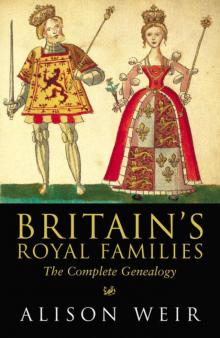 Britain's Royal Families: The Complete Genealogy
Britain's Royal Families: The Complete Genealogy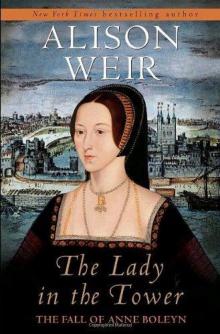 The Lady in the Tower: The Fall of Anne Boleyn
The Lady in the Tower: The Fall of Anne Boleyn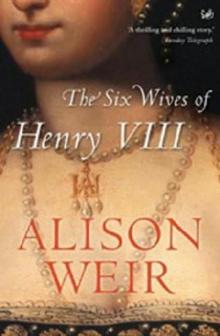 Six Wives of Henry VIII
Six Wives of Henry VIII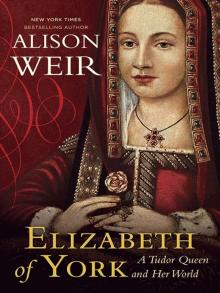 Elizabeth of York: A Tudor Queen and Her World
Elizabeth of York: A Tudor Queen and Her World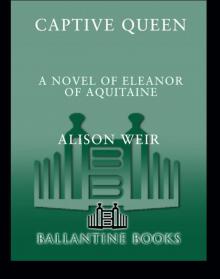 Captive Queen
Captive Queen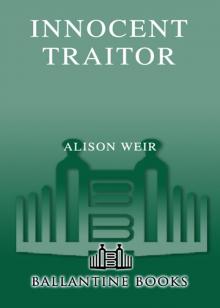 Innocent Traitor
Innocent Traitor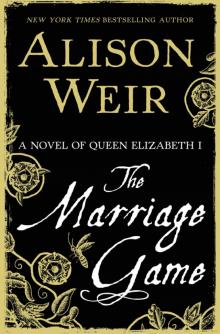 The Marriage Game
The Marriage Game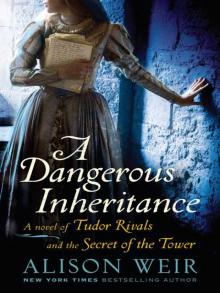 A Dangerous Inheritance
A Dangerous Inheritance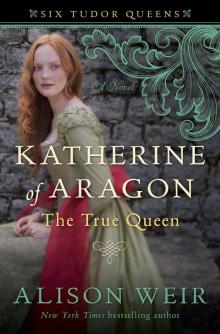 Katherine of Aragón: The True Queen
Katherine of Aragón: The True Queen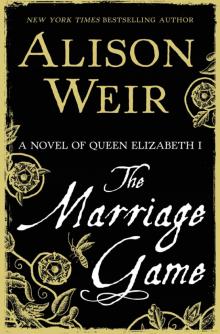 The Marriage Game: A Novel of Queen Elizabeth I
The Marriage Game: A Novel of Queen Elizabeth I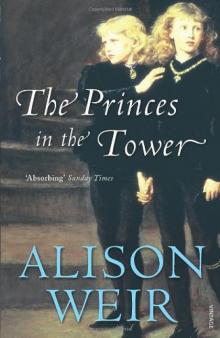 Princes in the Tower
Princes in the Tower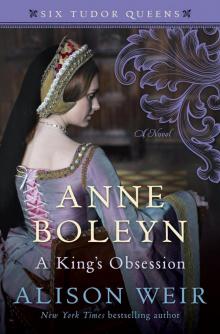 Anne Boleyn: A King's Obsession
Anne Boleyn: A King's Obsession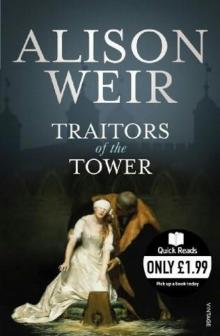 Traitors of the Tower
Traitors of the Tower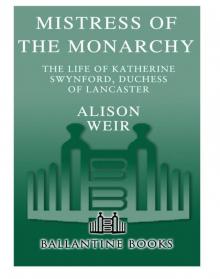 Mistress of the Monarchy: The Life of Katherine Swynford, Duchess of Lancaster
Mistress of the Monarchy: The Life of Katherine Swynford, Duchess of Lancaster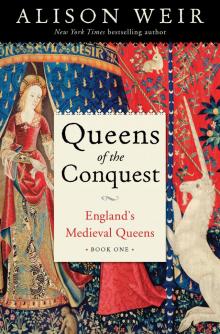 Queens of the Conquest: England’s Medieval Queens
Queens of the Conquest: England’s Medieval Queens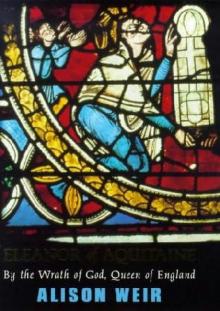 Eleanor of Aquitaine: A Life
Eleanor of Aquitaine: A Life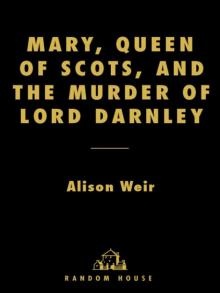 Mary, Queen of Scots, and the Murder of Lord Darnley
Mary, Queen of Scots, and the Murder of Lord Darnley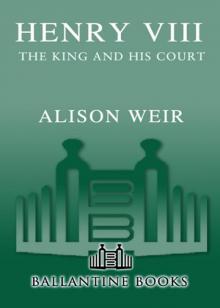 Henry VIII: The King and His Court
Henry VIII: The King and His Court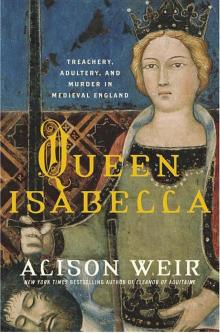 Queen Isabella: Treachery, Adultery, and Murder in Medieval England
Queen Isabella: Treachery, Adultery, and Murder in Medieval England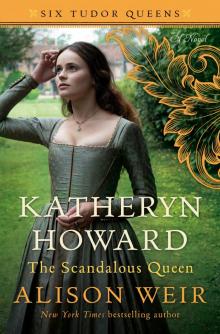 Katheryn Howard, the Scandalous Queen
Katheryn Howard, the Scandalous Queen Arthur- Prince of the Roses
Arthur- Prince of the Roses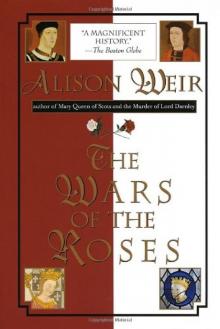 The Wars of the Roses
The Wars of the Roses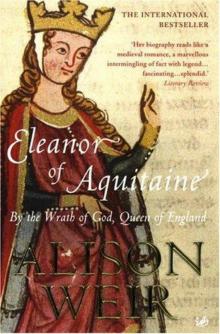 Eleanor of Aquitaine: By the Wrath of God, Queen of England
Eleanor of Aquitaine: By the Wrath of God, Queen of England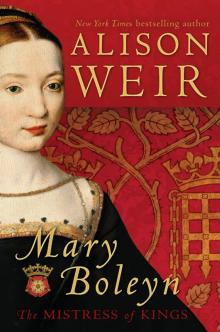 Mary Boleyn: The Great and Infamous Whore
Mary Boleyn: The Great and Infamous Whore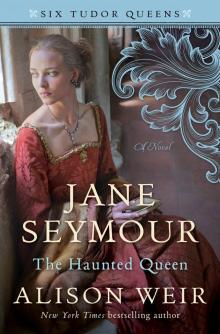 Jane Seymour: The Haunted Queen
Jane Seymour: The Haunted Queen Anna of Kleve, the Princess in the Portrait
Anna of Kleve, the Princess in the Portrait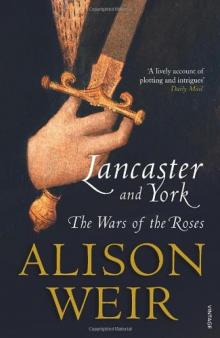 Lancaster and York: The Wars of the Roses
Lancaster and York: The Wars of the Roses The Grandmother's Tale
The Grandmother's Tale The Princess of Scotland (Six Tudor Queens #5.5)
The Princess of Scotland (Six Tudor Queens #5.5)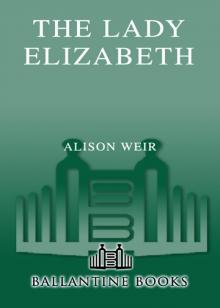 The Lady Elizabeth
The Lady Elizabeth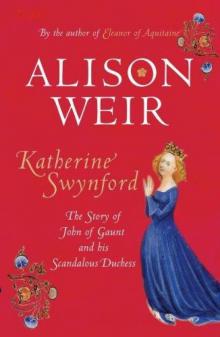 Katherine Swynford: The Story of John of Gaunt and His Scandalous Duchess
Katherine Swynford: The Story of John of Gaunt and His Scandalous Duchess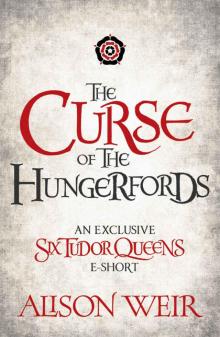 The Curse of the Hungerfords
The Curse of the Hungerfords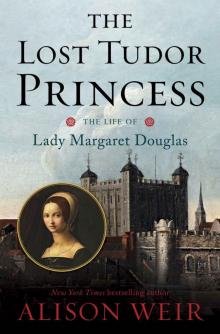 The Lost Tudor Princess: The Life of Lady Margaret Douglas
The Lost Tudor Princess: The Life of Lady Margaret Douglas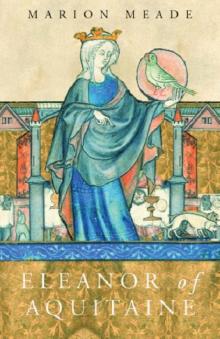 Eleanor of Aquitaine
Eleanor of Aquitaine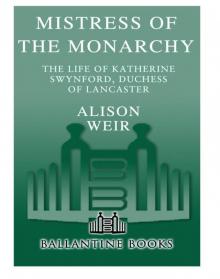 Mistress of the Monarchy
Mistress of the Monarchy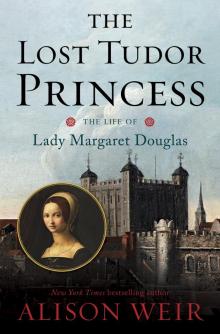 The Lost Tudor Princess
The Lost Tudor Princess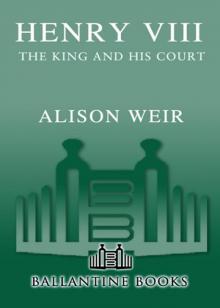 Henry VIII
Henry VIII Anne Boleyn, a King's Obsession
Anne Boleyn, a King's Obsession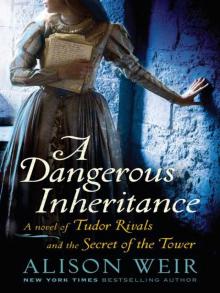 A Dangerous Inheritance: A Novel of Tudor Rivals and the Secret of the Tower
A Dangerous Inheritance: A Novel of Tudor Rivals and the Secret of the Tower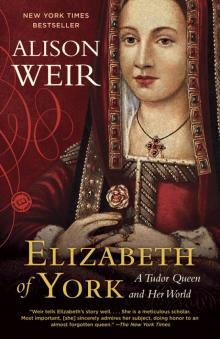 Elizabeth of York
Elizabeth of York Katherine of Aragon, the True Queen
Katherine of Aragon, the True Queen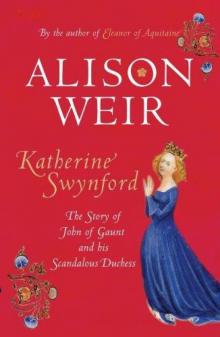 Katherine Swynford
Katherine Swynford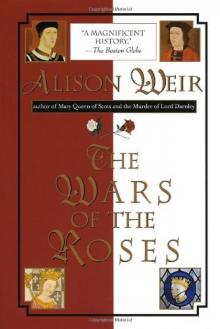 Wars of the Roses
Wars of the Roses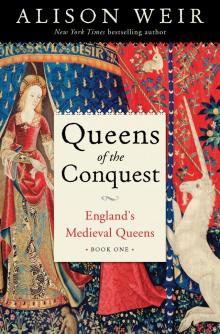 Queens of the Conquest
Queens of the Conquest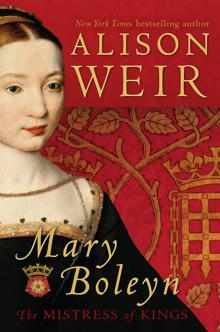 Mary Boleyn
Mary Boleyn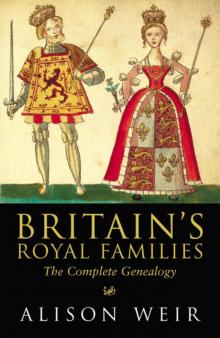 Britain's Royal Families
Britain's Royal Families The Tower Is Full of Ghosts Today
The Tower Is Full of Ghosts Today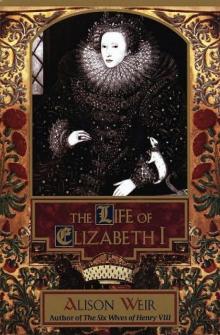 Life of Elizabeth I
Life of Elizabeth I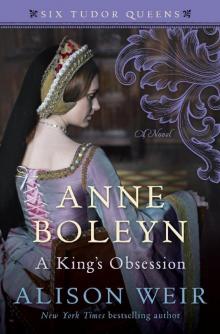 Anne Boleyn A King's Obssession
Anne Boleyn A King's Obssession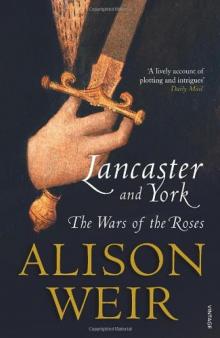 Lancaster and York
Lancaster and York Jane Seymour, the Haunted Queen
Jane Seymour, the Haunted Queen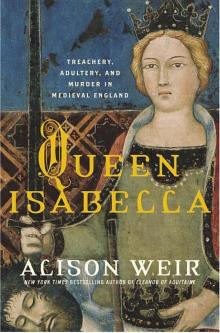 Queen Isabella
Queen Isabella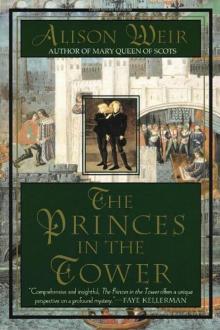 The princes in the tower
The princes in the tower